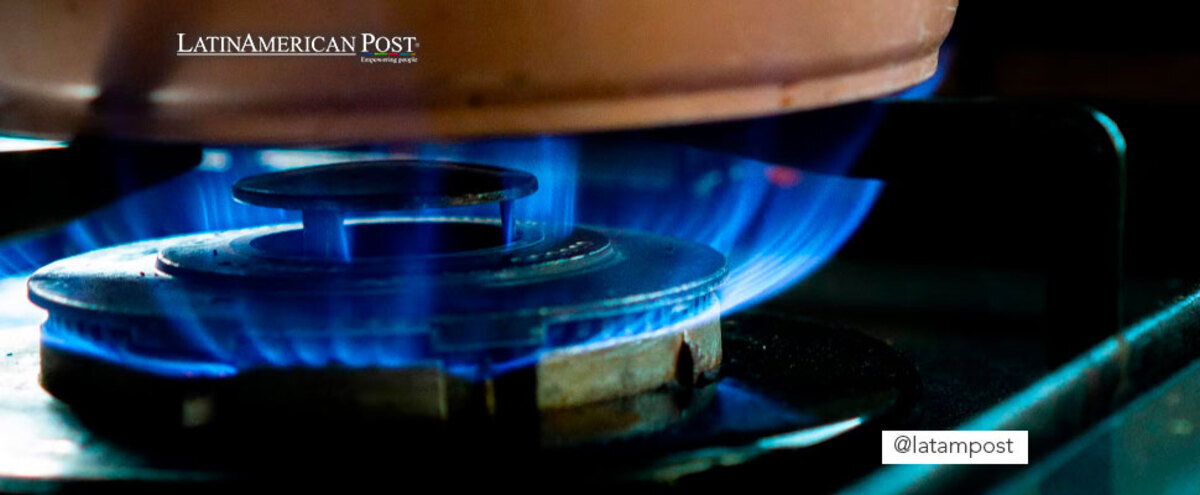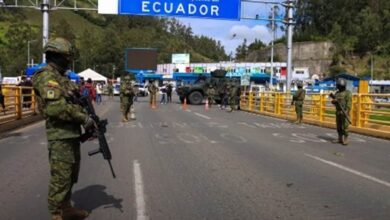Apparently, the government of Gustavo Petro in Colombia has clear intentions of wanting to depend on Venezuelan gas in case of a shortage in its own territory. How viable is this situation even seeing the reality between Russia and Central Europe in the fight for this natural resource? .

Photo: Unsplash
LatinAmerican Post | Christopher Ramírez
Listen to this article
Leer en español: ¿Crisis energética europea es un espejo para Colombia y su intento de depender del gas de Venezuela?
On August 7, a new government was inaugurated in Colombia, with President Gustavo Petro at its head. The former mayor of Bogotá is the first in the history of that country to reach the Presidency under the banners of the left and with various promises of change, not only in social order but diplomatically.
For this reason, it was to be expected that one of the first decisions he made would be to resume relations with Venezuela. A country with which former President Iván Duque had cut off all diplomatic communication in 2019, accusing Chavismo, led by Nicolás Maduro, of being an authoritarian regime.
Now, in the midst of diplomatic renewal between the two countries, a new controversy has arisen regarding the need for Venezuelan resources in Colombia. The controversy arose after the Minister of Mines and Energy, Irene Vélez, in conversation with the Blu Radio station, spoke of the way in which the national government plans to make an energy transition in the country, with Venezuela as the main gas supplier. .
"If having exceeded those gas reserves, which they explain to us is seven or eight years, we still need to fill our energy matrix, it could be done with that connection that we could transport gas with Venezuela," explained Vélez.
Likewise, she reported that although the objective is not to blindly depend on the Venezuelan natural resource, this idea cannot be ruled out, since it may be an unspoken reality in the future. “Doing this would just shift production – and investment and jobs – from one side of the border to the other. The atmosphere does not care if it is produced here or there, but Colombia would lose its self-sufficiency,” she said.
As expected, this proposal was not well received in some sectors of Colombia, especially among the leaders of the energy union. Most assured that depending completely on Venezuela to obtain the gas could mean an increase of up to four or five times the value for final consumers.
"Importing gas would increase approximately five times the cost of the service bill for Colombians," said Luz Stella Murgas, president of Naturgas. Likewise, she explained that, although she is not against having energy ties with the neighboring country, these should be consistent with Colombian sovereignty. That means not contemplating the gas extracted from Venezuela as a need.
"It is very important that neighboring countries are interconnected energetically as a system of redundancy and energy security", but not in a dependency on total supply, Murgas concluded.
It may interest you: The reasons of the inflation in Latin America. This is why the market is more expensive
Preventing Diplomatic Bad Times?
The statements of the union leader of Naturgas are consistent, not only under a scenario of energy self-sufficiency and respect for national sovereignty, but also within the framework of what is currently happening in Europe. Several of the great powers of the Old Continent are suffering from obtaining gas, since they clearly depend on Russia.
It should be remembered that since last February 24, when Russia invaded Ukraine under the excuse that there was a clear threat from the North Atlantic Treaty Organization (NATO) to its sovereignty by trying to place bases on Ukrainian territory, Europe, implicitly, started a war against the Kremlin (Russian government). Some measures have been the economic and political blockades that were intended to break the Russian military attack.
However, as expected, Russia did not stand still and launched its counteroffensive: blockades of gas to Central Europe, an area that depends largely on the Russians to meet their need for this precious natural resource.
For example, Germany imports 55% of its gas from Russia, and currently only receives a fifth of the total that only a few months ago came from the Eurasian giant. It is a move that the European Union considers to be a "despicable political weapon" by Russia.
"I would like to take up and reject a comment that I have read. I am referring to the comment by the Kremlin and Gazprom that Russia is the guarantor of energy security in Europe. This is a misrepresentation of all the facts. Because in reality Russia is using its great power, too great a power that we have given him, to blackmail Europe and Germany,” said German Economy Minister Robert Habeck.
For its part, Gazprom, the Russian state company, assures that these cuts are not directly related to the blockades against their country, but rather are “technical problems” that they are trying to solve.
Concern or not, this situation has a part of Europe in check, with increases of 9% in gas prices, and Russia threatening an increase of up to 200% by the end of 2022.
In this way, this reality can be a mirror for Colombia or any other country that plans to depend entirely on an ally to supply itself, whether it is gas or another natural resource. For several experts, times of peace can be short, especially in an area like Latin America, where the convulsive society is transformed from time to time to ideologies or types of government contrary to those of its neighbors.
In times of enmity, alliances can become tools of “war” that can be detrimental to nations dependent on one another.





